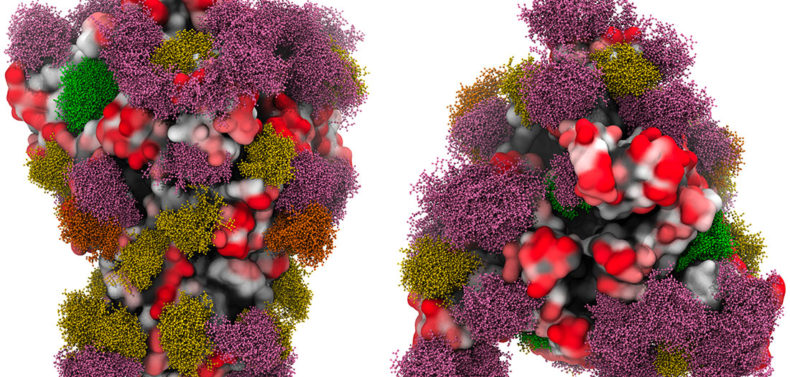Georgia hit a milestone with its 1 millionth COVID-19 case last week and is approaching 20,000 deaths. The Delta variant continues to drive a surge in Clarke County’s COVID-19 cases, with an average of 64 confirmed cases a day as of Aug. 24, up from 49 a week earlier. In particular, cases among children ages 10-17 are spiking statewide—they’ve gone from fewer than 30 to more than 1,100 per day since July, according to Georgia Department of Public Health data.
By another measure used by the CDC, Clarke County had 364 cases over the past seven days at the end of last week, an increase of 34% over the previous week. That’s the metric the Athens-Clarke County government uses to decide whether it’s safe to issue permits for events, and unless it starts to fall drastically, AthFest and other major events scheduled for this fall are likely to be canceled. To finalize a permit, ACC regulations require that cases over a seven-day period should be below 150 two weeks before the event is scheduled to take place.
Local hospitals are nearly full and adding beds to their intensive care units, with just one of 76 intensive care unit beds open and 94% of all hospital beds occupied in Region E on Aug. 24. Over a third of those patients, 232, had COVID-19, according to DPH, and 85 of those were admitted in the past week, according to the CDC. Almost all of those patients are unvaccinated, according to hospital administrators, who continue to plead with the public to get vaccinated because it prevents serious illness and death. In Clarke County, 41% of residents are fully vaccinated, and 45% have received at least one dose, according to DPH.
On Aug. 23, the Food and Drug Administration announced that it’s given full approval to the Pfizer vaccine, which public health experts hope could assuage misgivings about getting vaccinated and pave the way for more vaccine requirements.
While Clarke County’s vaccination rate is relatively low, the strain on hospitals is also due to high COVID transmission rates in surrounding counties that are served by Athens hospitals. Jackson County is averaging almost twice as many new cases as Clarke when adjusted for population. Barrow, Madison, Morgan and Greene counties also have higher infection rates than Clarke.
On Aug. 16, Gov. Brian Kemp announced that he would release $125 million for hospitals to hire and pay 1,300 health care workers through Dec. 1. “Virtually every hospital’s most pressing issue is lack of qualified staff to treat the patients coming through their door,” he said.
But Kemp reiterated that he won’t mandate mask-wearing or vaccination, and he signed an executive order Aug. 19 prohibiting local governments from requiring masks. (Athens-Clarke County’s recently reinstated mask ordinance has an opt-out provision for businesses.)
“I think at this point, if anybody out there trusts the government, it’s not many people,” Kemp said, pointing to the CDC reversing course on mask-wearing. “I think mandates, that just pushes people into a corner.”
Kemp said he won’t require state employees to be vaccinated, but he is giving them the day off the Friday before Labor Day in hopes that they’ll use it to get the shot.
“Finally, I want to reiterate that Georgia will remain open for business,” he added. “We will not shut down. We will not prevent families from earning a paycheck.”
On Aug. 24, Kemp also deployed 105 National Guard troops to 20 hospitals to help with staff shortages.
Democrats and public health experts have criticized Kemp for his stance against mask mandates. “When did viruses become partisan?” Sen. Raphael Warnock said last week at an Atlanta Press Club event. “Viruses don’t know partisan divides. They don’t know geographic divides. Leaders need to be leaders in this moment.”
Also last week, ACC Mayor Kelly Girtz joined the mayors of Atlanta, Savannah and Augusta in writing a letter to Kemp requesting that he require masks inside state institutions.
“Asking others to mask is no different than asking motorists to stop at a red light or asking residents to keep a dog on a leash at the park. It is the neighborly approach that we were all raised to follow,” the letter reads. “And given this challenging moment for our healthcare system, it is the necessary move. If we can keep more of our hospital beds empty, that allows quality care for anyone when they have a sudden slip or fall, or have a traffic accident, or experience any medical crisis. Reports from the last week note hours-long waits in emergency rooms throughout the state, and simple preventative measures like mask wearing can reduce this burden.”
Like what you just read? Support Flagpole by making a donation today. Every dollar you give helps fund our ongoing mission to provide Athens with quality, independent journalism.










